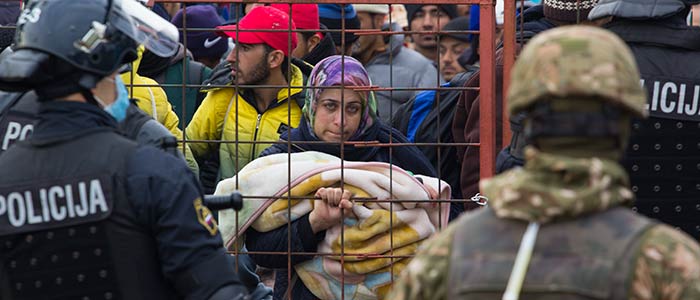The commission also outlined a number of other areas where the bloc needs to step up its efforts to address the crisis and said collective European action is needed to pick up the slack.
“We can only get out of this crisis together,” said commission first vice president Frans Timmermans.
“2016 must see clear, tangible results in regaining control of irregular flows and of our borders, starting with the next weeks and months.
“For this to happen, the EU as a whole must step up its efforts; the proposals the commission has put on the table must be adopted and the approaches that were agreed in 2015 fully implemented.”
Figures released by the commission show that, of the 160,000 refugees the European Council agreed to relocate in September from Greece, Hungary and Italy, only 272 have been moved to other member states.
The relocation was accompanied by €780m in EU budget support for participating member states.
The commission also put aside €50m in financial support for member states participating in its resettlement scheme, which planned to take a total of 22,504 refugees from outside of the EU by 2017.
Based on information from member states and associated states, 5,331 refugees were due to be resettled in 2015 but by the year’s end the commission could confirm the effective resettlement of only 779.
A total of 11 so-called ‘hotspot’ areas in Greece and Italy were identified as sites for EU-run reception centres to identify and then relocate or return arriving refugees. However, of the five planned for Greece only one is fully operational, while of the six planned for Italy only two are up and running.
Other 2016 priorities for the commission include: increasing the rate of return of those who do not have the right to stay in the EU; returning to the normal functioning of Schengen area; and bringing negotiations on the European Border and Coast Guard to a conclusion.
The commission said it will also be setting out reforms to the Dublin System, which stipulates that refugees must seek asylum in the first EU country they arrive, as it has been shown unsustainable in its current form.
A package of measures on legal migration will also be put together, the commission said, to reduce the reliance on irregular routes.














